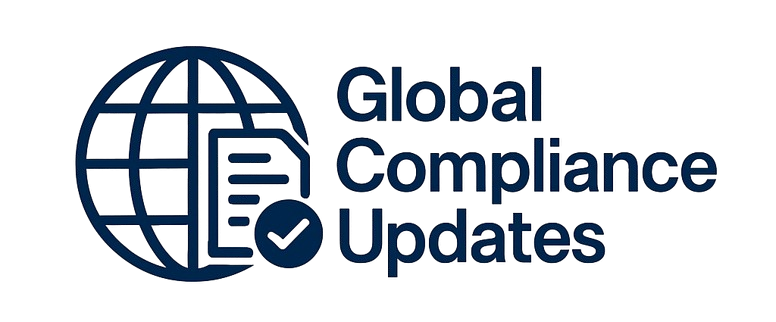An effective complaint handling system is an extremely important part of any quality system. Manufacturers should understand that any complaint received on a product shall be evaluated and, if necessary, thoroughly investigated and analyzed, and corrective action shall be taken.
WHY SHOULD YOU ATTEND?
The results of this evaluation should lead to a conclusion regarding whether the complaint was valid, what the root cause of the complaint was, and what action is necessary to prevent further occurrences. Complaints cannot be ignored. They are an excellent indicator of problems with the use, design, and/or manufacture of a product. A single complaint that is thoroughly investigated may lead a company to take remedial or corrective action. It may also take an ongoing analysis of numerous complaints before a trend is spotted that causes a company to initiate changes in their product, labeling, packaging or distribution. The regulatory expectations for both pharmaceuticals and medical devices will be emphasized as well as overview of best practices for timely and effective investigations.AREA COVERED
- Understand how and why CAPA is tied in to product complaint investigations
- Examples of tools currently being used to conduct investigations
- How far and in-depth do you go with your investigations
- What are current FDA "hot" buttons and trends
- Benchmarks and best practices for investigations
- How to become a "good" investigator and the emphasis on closed-loop investigations
- Why risk-based approaches are vital to the decision-making process
- How to improve and bullet-proof your product complaint management system with investigations
WHO WILL BENEFIT?
- All levels of Management for all departments and those who desire a better understanding
- QA/QC/Compliance/Regulatory Affairs
- Marketing & Sales & Customer Service
- Engineering/Technical Services
- Consultants
- Operations and Manufacturing
- Understand how and why CAPA is tied in to product complaint investigations
- Examples of tools currently being used to conduct investigations
- How far and in-depth do you go with your investigations
- What are current FDA "hot" buttons and trends
- Benchmarks and best practices for investigations
- How to become a "good" investigator and the emphasis on closed-loop investigations
- Why risk-based approaches are vital to the decision-making process
- How to improve and bullet-proof your product complaint management system with investigations
- All levels of Management for all departments and those who desire a better understanding
- QA/QC/Compliance/Regulatory Affairs
- Marketing & Sales & Customer Service
- Engineering/Technical Services
- Consultants
- Operations and Manufacturing
Speaker Profile
 David R. Dills
David R. Dills
David Dills is currently a Global Regulatory Affairs Consultant after departing his last company earlier this year in 2024 and a full-service CRO as Director of Regulatory Services. He is a seasoned Global Regulatory Affairs, Regulatory Strategist, and Compliance professional with demonstrated capabilities and a track record with more than 35 years of accrued experience in the functional areas of Regulatory Affairs, Regulatory Intelligence, Regulatory Compliance, Global Regulatory PM/PD, and QA/QAE for US and international developers/manufacturers/sponsors for early-stage, mid- and large-size enterprises for pharma, biologics, combination, and medical device products from investigational to marketing approval. He has worked for CROs, …
Upcoming Webinars

Effective Communication: Ensuring Clarity, Accountability a…

2-Hour Virtual Seminar on Workplace Investigations 101: How…

AI for Excel Professionals: Enhancing Productivity with Cha…

Employers Should Prepare for Immigration Raids in 2026! Thi…

The Importance of the first 5 seconds when presenting

Negotiating Skills For Professional Results - Winning Strat…

Validation Statistics for Non-Statisticians

Workplace Behavior in 2026: Tackling Conflicts and Incivili…

FDA Recommendations for Artificial Intelligence/Machine Lea…


Interactive dashboards & analytics in Excel

Bootcamp for New Managers and Supervisors: Develop These Es…


Enhancing Project Management with Storytelling Techniques

4-Hour Workshop on Data Simplified: Sorting and Filtering, …

Creating Your 2026 Marketing Strategy

The Language of Leadership: Is Your Communication Style As …


ChatGPT for Innovative Business Advisory Services for Accou…

Utilizing A Proven Process When Conducting Sensitive, Inter…

How to Write Procedures to Avoid Human Errors

Human Factors Usability Studies Following ISO 62366 and FDA…

Why EBITDA Doesn't Spell Cash Flow and What Does?

Mastering DAX Patterns in the Era of AI & Copilot

Establishing Appropriate Quality Metrics and Key Performanc…


IRS Form 1099 Reporting: Compliance Requirements

FDA QMSR Explained: How the QMSR Replaces the QSR

How to Manage the Legal Landmine of the FMLA, ADA and Worke…

Understanding EBITDA – Definition, Formula & Calculation

Tattoos, hijabs, piercings, and pink hair: The challenges …

FDA Compliance And Laboratory Computer System Validation

Medical Device Hazard analysis following ISO 14971




Excel Spreadsheets; Develop and Validate for 21 CFR Part 11…

Excel + AI: The Smart User's Guide to Faster, Easier Work w…
